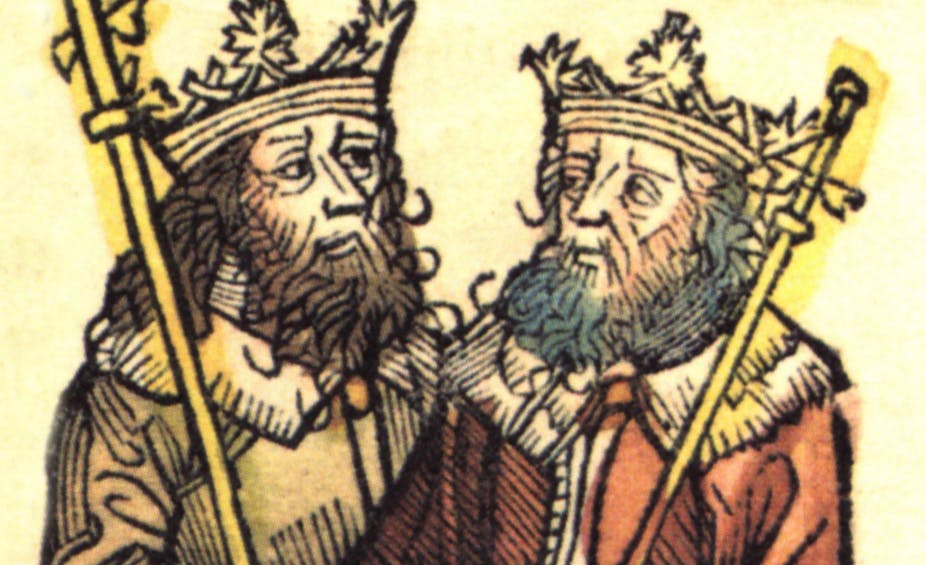
Odoacer (left) and Theoderic (right) in a woodcut from the Hartmann Schedel (1493).
INTERFOTO / Alamy Stock Photo
Wulf and Eadwacer occupies just a few lines in the Exeter Book, an anthology of mostly anonymous Old English poems made in the second half of the 10th century. As a relic of a literary culture largely lost, the Exeter Book is priceless. But some of its contents are very hard to understand.
This includes Wulf and Eadwacer. The poem’s first editor said in 1842: “Of this I can make no sense.” Over 100 studies later, not much has changed.
The poem seems to be spoken by a woman, lamenting her relation to two men, Wulf and Eadwacer, in some unknown watery landscape with islands. She also mentions a “whelp”, often supposed to be her child by one or other of them, or neither. If you think that sounds clear enough, every point could be – and has been – disputed by scholars.
Read the rest of this article...